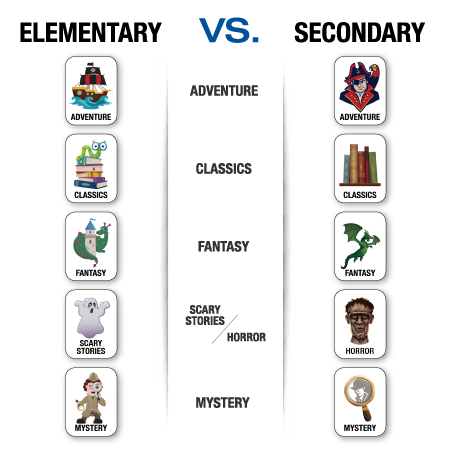Is the Dewey Decimal System the way to go?

Oh, Mr. Melvil Dewey, you had many secrets up your sleeve, not only a serial sexual harasser but also the inventor of a library system used to torment young college students trying to find a book since its invention in 1873. Don’t get me wrong, the system had its place in a time where everything (books, videos, media sources, etc.) was deemed by society and our high scholars as “fitting” into a specific category or subject. However, after researching and reading blog posts from Care Harder and Tiffany Whitehead, I have discovered that there is so much wrong with using this system to categorize information because we are leaving many groups of people out.
“The way we organize and make information accessible shapes who we are as a society. We show how we think and what/who we value by how we categorize it” (Care Harder, Dec. 26th)
Being labeled as a person is not fun. I am sure you have been offended when someone said, ” You know you’re like that because you are a ….. According to Goldsmiths University of London and Library Blog, the LGBTQ+ community authors, and books have mainly been categorized into the Dewey Decimal system 306.7 Sexual orientation, transgenderism, and intersexuality. However, should the texts not be integrated into 305’s Groups of People section? Has the LGBTQ+ community not fought hard enough for their rights since the Stonewall riots in 1969? We are still categorizing them and their works based on the sexual nature of the content and, worse, their author’s personal life.
Great news, folks: The Care Harder blog does not leave us in a pit of despair but gives us a possible solution to today’s unhinged discrimination. She discusses a group called the OCLC, which works in the Library of Congress as a sort of checks and balances department, ensuring that through research and connecting with communities of people, the field of Library Science is on the right path to helping children build a strong learning foundation, where shared knowledge is the common thread.
Now that we know the Dewey System may not be the best solution for categorizing our books in our library, what is the best way? Tiffany Whitehead and many other librarians suggest Genre Shelving. If you’re still not convinced, let’s list the pros below.
- Reader Guidance: Genres help readers find books that match their interests and preferences, making it easier to discover new books to enjoy
- Targeted Marketing: Teachers and Librarians can target specific audiences more effectively by categorizing books into genres, increasing the chances of successful book checkouts
- Author Identification: Genres allow librarians to introduce students to specific author brands and styles, making it easier to help students discover if they are a fan or find enjoyment in that author’s work
- Community and Discussion: Genres create communities of readers who share similar tastes and can engage in discussions, recommendations, and reviews related to specific genres. Librarians can use this knowledge to create more student-centered book clubs.
- Libraries and Organization: Libraries can organize their collections efficiently, making it more straightforward for patrons to locate books of interest.
- Diverse Reading Experience: Genres offer diverse reading experiences, from mystery and romance to science fiction and fantasy, allowing readers to explore various themes and styles.
Okay, so I have you convinced, now you are stressed because how in the world are you going to do this, and where do you start? Tiffany Whitehead provided readers with a great guideline.
First, review the book industry standards and determine what subjects best fit your library collection.
Second: Create book stickers with labels and images that match the subject. For example, ghost image and SS (Scary Stories)

Third: Determine how you will place your categories in your current library setup. Are you going to put them alphabetically or keep like genres together as they once were, like Tiffany Whitehead did?
Fourth: Look at the books you know you can easily categorize first. Start with one section at a time and group those stories, labeling as you go. Ensure you also label your shelves with free-standing cards on top, labeled bookends, or stickers on the shelf edge. Ensure that these labels also have coordinating images if you work in an elementary school setting.
Fifth: Tiffany Whitehead suggests creating sub-categories with big sections. For example, in the section Animals, you could sub-categorize based on mammals, reptiles, amphibians etc.
Categorizing books based on genre is the way to go. Students will be able to navigate to the genre of books they enjoy easily, librarians can ensure that students have a diverse selection of genres of their students, and students will be more encouraged to read. Students will be presented with a well-organized system that they can understand and is more accessible. They will see that the library cares about their interests and will more easily find peers who share their favorite books.
Still not convienced? Watch the video below and leave your opinion. Are you pro genrefication or pro-Dewey?
Citations:
Book Industry Study Group . (2022). Complete bisac subject headings list. FREE Complete BISAC Subject Headings List – Book Industry Study Group. https://www.bisg.org/complete-bisac-subject-headings-list
Laird , K. (26AD). Something is rotten in the Dewey Decimal system. Care Harder. October 10, 2023, https://www.careharder.com/blog/systemic-injustice-in-the-dewey-decimal-system
Whitehead, T. (2012, April 4). DITCHING DEWEY. Mighty Little Librarian . October 10, 2023, http://www.mightylittlelibrarian.com/?p=668
Yellowhead Regional Library. (2021). To Genrefy or Not to Genrefy? That is the Question. YouTube. Retrieved October 10, 2023, from https://www.youtube.com/watch?v=guObsxgpRS8.
Leave a comment